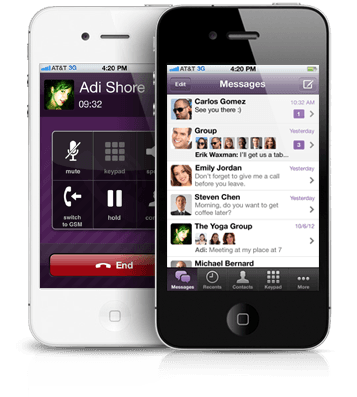Telecom companies who were once thought of innovators and trend-setters in technology are now being beaten at their own game. New players like Nimbuzz, Viber, Vonage and Blackberry are offering customers services and applications where they can perform voice calls and send messages for free online. This model of business hits right at the bottom line of telecom companies who depend on these services. The hikes in call rates and cutting of discounted usage of services aren’t helping the telecom giants either.
Smart phone usage has considerably increased around the world, and more and more Wi-Fi spots are popping up in urban areas. Malls and cinema theatres which depend on customers for their retail sales now offer free Wi-Fi in their areas to lure customers to stay on for a bit longer.
And applications run this online world now. They make life easier, cheaper and fun. And apps providing customers free communication tools are considered essential in any smart phone toolkit.
In India, a telecom law that would makes Voice-over-IP legal will soon become effective, and that would be the decisive blow to the traditional business model. India’s telecom minister, Mr. Kapil Sibal, has already told the telcos to change their existing model to one that offers services based on billing data usage.
The bandwidth available nowadays and the comparative affordability of VoIP services account for the rising popularity of these VoIP services.
In addition to newer services like Nimbuzz and Viber, technology incumbents are also acting on this change. BlackBerry has introduced voice chat facilities with its new Messenger 7 enabling users to talk, send messages and pictures all at the same time, provided there is Wi-Fi connectivity.
Facebook has recently started service whereby iPhone users can use Facebook Messenger app to make calls to other iPhone users for free. But this offer is currently only available in the US.
Indian telecoms could look to foreign players like T-Mobile for new business models. T-Mobile has developed an app that lets users call any number in the US for free. The users don’t even need to be T-Mobile subscribers; they only need to be on Wi-Fi.
Google offers a far more comprehensive solution in Google Voice, which allows users to make outgoing calls, take incoming calls and send text messages through their apps. But it needs an extra app to ensure incoming and outgoing calls work on the smartphone - on the desktop, calls only work in conjunction with Gmail.
In the meantime, Nimbuzz and Fring are rapidly growing in popularilty amongst the youth, especially in South-East Asian countries like India.
To ensure their telecom companies survive this technological onslaught, some countries have gone so far to make these services illegal. But how long this protection can help the telecom companies remains to be seen. People tend to resort to other measures such as using proxy servers to circumvent such restrictions, which is also not healthy in the long run.





